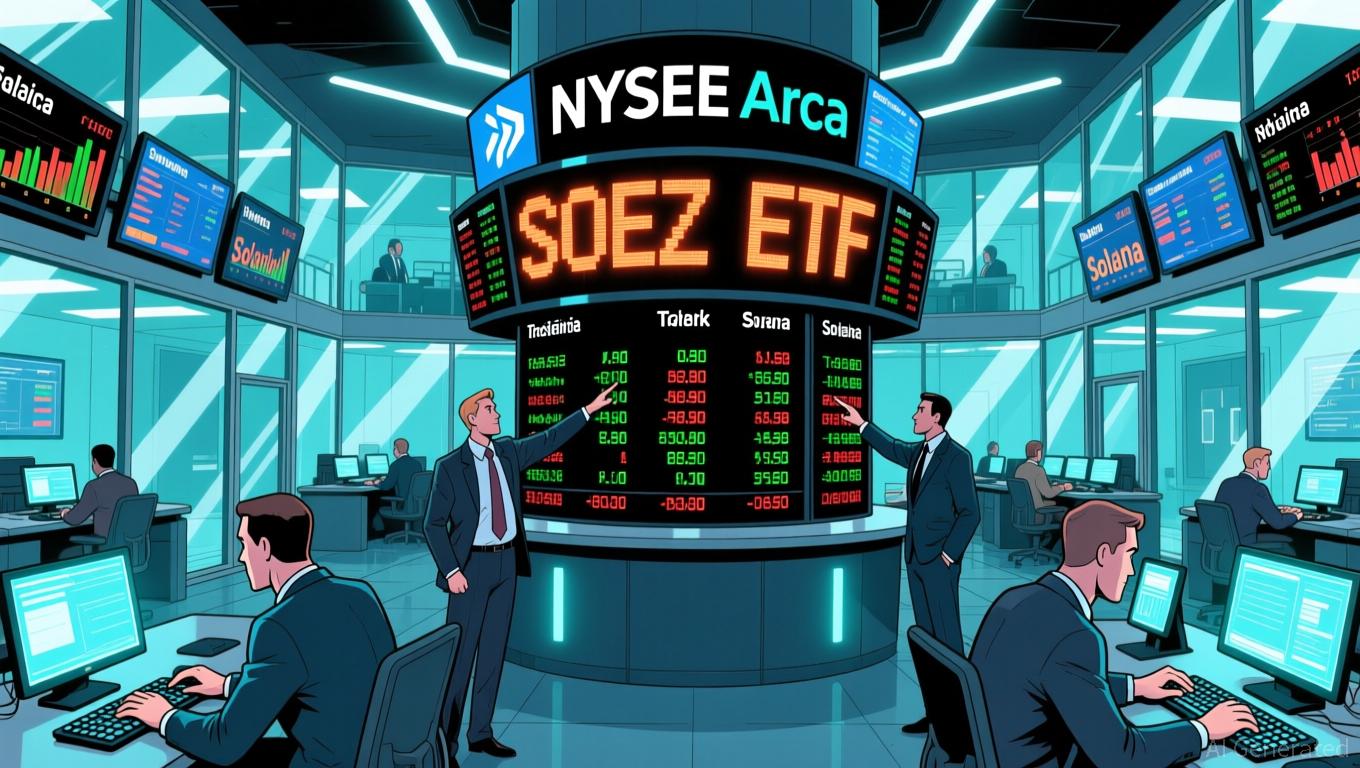KakaoBank Breaks Through Regulatory Barriers to Introduce Stablecoin as South Korea Accelerates Digital Finance Competition
- KakaoBank accelerates development of "Kakao Coin," a Korean won-pegged stablecoin, to lead South Korea's blockchain-driven financial innovation. - Founder Kim Beom-soo leads the project, hiring blockchain experts for infrastructure while navigating regulatory debates over bank ownership requirements. - Naver-Dunamu's $10.3B merger creates a crypto-payment giant, intensifying competition as firms race to secure stablecoin market dominance amid unclear regulations. - Regulatory gridlock between Bank of Kor
KakaoBank, recognized as South Korea’s top digital bank, is ramping up efforts to launch a stablecoin tied to the Korean won, known as "Kakao Coin," as part of its broader strategy to embed blockchain into its financial offerings. After securing necessary internal and regulatory green lights, the company is making a decisive move to lead the nation’s emerging stablecoin sector. The project is reportedly being led by Kakao’s founder, Kim Beom-soo,
This initiative coincides with South Korea’s increasing focus on digital assets,

The competitive landscape has intensified following the Naver-Dunamu merger, completed in November 2025. Naver Financial’s takeover of Dunamu, which operates Upbit—the country’s largest crypto exchange—has formed a powerful entity with robust payment systems and regulatory know-how. The $10.3 billion all-stock transaction, which lowers Naver’s stake to 17%, is projected to
KakaoBank’s approach also involves exploring STOs, working with Korea Investment & Securities and Lucent Block to create blockchain-driven financial solutions. These initiatives are in step with recent legislative changes in South Korea,
Regulatory certainty remains the main barrier. Although lawmakers have put forward several stablecoin proposals, disagreements continue over ownership models, reserve policies, and interest distribution. The BOK’s demand for banks to hold at least 51% ownership in issuers stands in contrast to the FSC’s more inclusive stance,
Disclaimer: The content of this article solely reflects the author's opinion and does not represent the platform in any capacity. This article is not intended to serve as a reference for making investment decisions.
You may also like
Solana News Update: Mainstream Investors Gain Approved Altcoin Exposure Through Franklin's Solana ETF
- Franklin Templeton files final paperwork for its Solana spot ETF (SOEZ), signaling imminent NYSE Arca listing after SEC Form 8-A submission. - The 0.19% fee structure includes waived sponsor costs on first $5B until 2026, building on its XRP ETF's $164M debut and broader altcoin ETF expansion strategy. - Regulatory clarity post-2025 commodity ETF guidelines has accelerated Solana ETF growth, with six U.S. funds now active and Bitwise's BSOL leading with $478M AUM. - The ETF offers direct SOL token exposu

"Chainlink's Influence in Crypto Compared to Interlink's Challenges: Similar Tickers Cause Investor Hesitation"
- Chainlink (LINK) is highlighted as critical infrastructure for blockchain adoption, enabling cross-chain interactions and RWA tokenization via modular middleware. - Grayscale emphasizes its role in bridging traditional finance with decentralized systems, driving LINK's market cap growth to top non-L1 crypto asset status. - A 2025 cross-chain DvP pilot with JPMorgan and Ondo Finance demonstrates Chainlink's potential to scale institutional-grade tokenized asset settlements. - Ticker confusion with Interli
BNB News Update: Meme Coin Traders Steer Through Regulatory Ambiguity to Lock in Profits
- VanEck's proposed BNB ETF highlights regulatory challenges in meme coin investments, with staking language removed due to SEC uncertainties. - The filing underscores the need for investors to align strategies with evolving SEC guidelines on token classification and protocol staking. - A parallel Solana ETF with staking features demonstrates diversified risk management, balancing innovation with caution in volatile crypto markets. - SEC's ambiguous stance on staking activities creates regulatory gray area
The Growth of Social Impact Investing: Insights from Public Interest Legal Research and New Developments in Emerging Markets
- Legal professionals are reshaping ESG investing through policy advocacy and litigation, balancing fiduciary duties with sustainability goals in markets like the U.S. and EU. - Emerging markets like Morocco and China adopt tailored ESG frameworks, driven by regulatory mandates and legal scholarship emphasizing transparency and accountability. - Anti-ESG political pushback and greenwashing risks persist, but tools like the Sustainability ROI Workbook demonstrate ESG's financial benefits and investor demand
